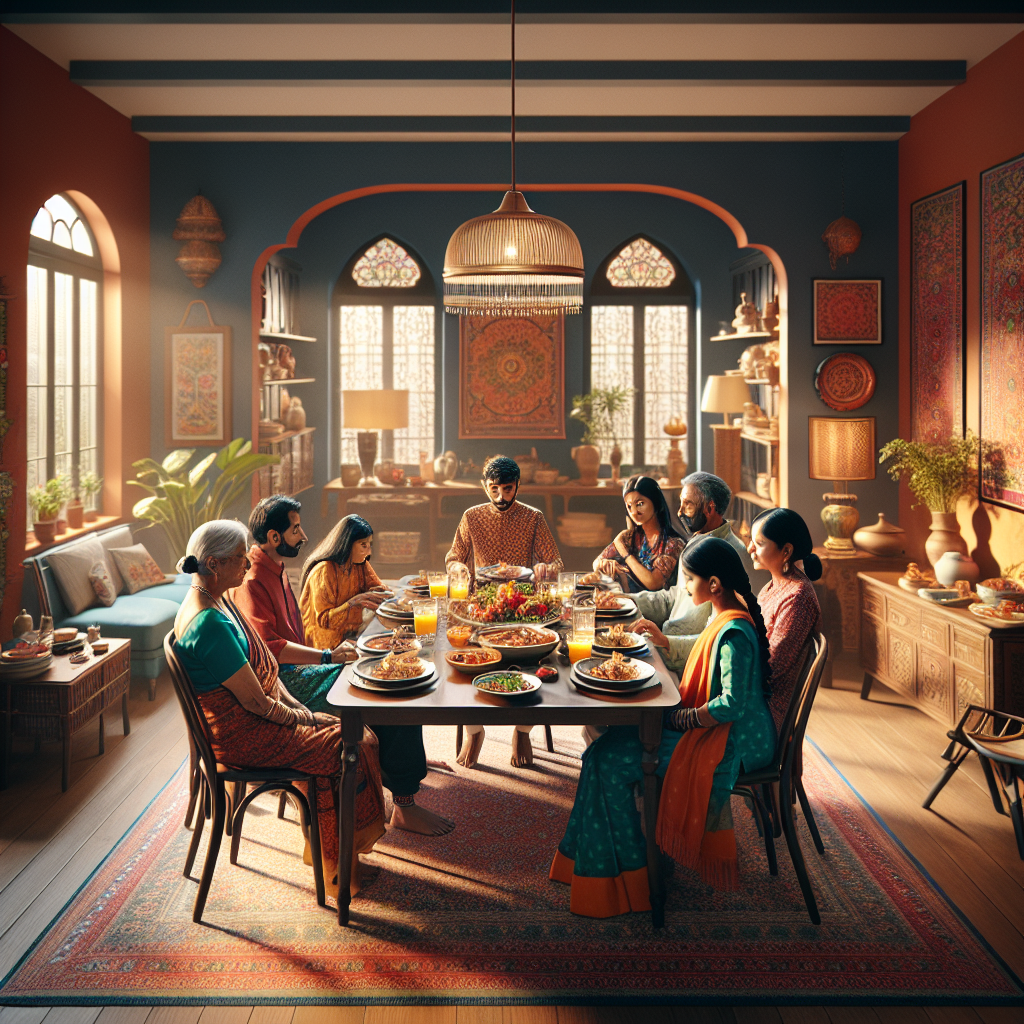Family Karma: Exploring the Heartwarming Bonds of South Asian Families in America
In recent years, reality television has evolved, capturing the multifaceted dimensions of various cultural heritages. One show that stands out not just for its compelling storylines but also for its representation of South Asian families is "Family Karma." This refreshing series gives viewers a glimpse into the lives of young South Asians in America, navigating their personal aspirations while honoring the rich traditions and familial bonds intrinsic to their culture.
A Unique Cultural Landscape
"Family Karma" premiered on Bravo in March 2020, becoming a trailblazer for South Asian representation on mainstream television. It features a cast of Indian-American millennials living in Miami, and it intricately weaves their day-to-day lives with cultural values and family expectations. From Bollywood-influenced parties to elaborate wedding preparations, what becomes strikingly clear is how the characters grapple with their dual identities. They are proud of their heritage, yet eager to adopt elements of American life, creating a unique cultural symphony.
Heartwarming Familial Bonds
One of the most enchanting aspects of "Family Karma" is the portrayal of family dynamics. The show celebrates not only the joyous moments but also the complexities inherent in family relationships. The interactions between parents and children often highlight conflicts that arise when tradition meets modernity. For instance, viewers witness the tension between pushing for educational success and allowing children to pursue their own paths to happiness. This theme resonates with many immigrant families, providing a relatable narrative that transcends cultural boundaries.
The bonds of friendship among the cast are equally important. Many of them have known each other since childhood, reflecting the idea that extended family often includes close friends. Their relationships show that while families can be a source of pressure, they are also a foundation of support. The deep-rooted friendships among cast members provide a buffer against family expectations, offering emotional refuge and shared understanding.
Nurturing Traditions Amid a Modern World
"Family Karma" adeptly balances the respect for tradition with the desire for individuality. Viewers observe how cast members participate in significant cultural events, such as Diwali celebrations or wedding planning, while simultaneously navigating the challenges of contemporary dating and career ambitions. These nuances offer a genuine portrayal of the South Asian experience in America, demonstrating that preserving traditions does not preclude the pursuit of personal happiness.
The show delves into the significance of family gatherings, where recipes passed down generations are lovingly prepared, highlighting the importance of food as a means of cultural connection. Such moments not only represent a physical sharing of meals but also symbolize the emotional nourishment that family provides, fostering connections that transcend generations.
The Power of Representation
"Family Karma" serves as a powerful narrative in breaking stereotypes surrounding South Asian families in America. It showcases a diverse group of individuals who navigate their unique journeys against the backdrop of vibrant cultural heritage. This visibility in media is crucial, as it allows the broader audience to understand the complexities of immigrant experiences, while South Asians in America find representation that mirrors their realities.
The show also addresses issues such as mental health awareness, LGBTQ+ relationships, and the struggles of balancing cultural expectations, broadening the scope of conversation within the South Asian community. For many viewers, "Family Karma" is not just another reality show but a source of inspiration that encourages authenticity and openness about different facets of life.
Challenges and Triumphs
While "Family Karma" is praised for its heartwarming narrative, it’s not without its challenges. As the cast tackles the highs and lows of life, they also confront deeper issues, such as the impact of societal pressures, family expectations, and the trials of forging an independent identity. The conflict between personal aspirations and family obligations is a recurring theme, resonating deeply with viewers who find themselves in similar predicaments.
The strength of the show lies in its ability to present these conflicts without shying away from the emotional turmoil they can create. The characters’ journeys become a testament to resilience and the importance of understanding and compassion within families.
Conclusion
"Family Karma" is more than just a reality show; it is a cultural phenomenon that beautifully captures the essence of South Asian family life in America. It reflects the challenges, joys, and complexities of navigating a dual identity while fostering strong familial and friendly bonds. By providing a platform for representation, it helps bridge the gap between cultures, offering a heartfelt narrative that resonates widely.
As the series continues to unfold, it promises to deepen the exploration of these themes while entertaining viewers with its captivating blend of drama, humor, and heart.
FAQs
1. What is "Family Karma"?
"Family Karma" is a reality television series on Bravo that showcases the lives of Indian-American millennials in Miami, exploring their experiences with family, culture, and friendships.
2. Who are the main cast members?
The show features a diverse cast, including characters like Amrit Kapai, Vishal Parvani, and Bali Chainani, showcasing their unique stories and backgrounds.
3. How does the show address cultural issues?
The series highlights the complexities of balancing traditional South Asian values with modern American life, touching upon topics like mental health, LGBTQ+ relationships, and societal expectations.
4. Is "Family Karma" suitable for all audiences?
While it features relatable themes and humor, the show includes mature content and may not be suitable for younger viewers.
5. Why is representation important in shows like "Family Karma"?
Representation allows for a broader understanding of diverse cultural narratives, fostering empathy and breaking stereotypes associated with specific communities.
6. Where can I watch "Family Karma"?
"Family Karma" is available for streaming on platforms like Bravo’s website and other streaming services that offer Bravo content.
It looks like you meant to provide a prompt for me to respond to. Please share what you have in mind, and I’d be happy to assist!, #Family #Karma #Exploring #Heartwarming #Bonds #South #Asian #Families #America, #Family #Karma #Exploring #Heartwarming #Bonds #South #Asian #Families #America, 1736551166, family-karma-exploring-the-heartwarming-bonds-of-south-asian-families-in-america





